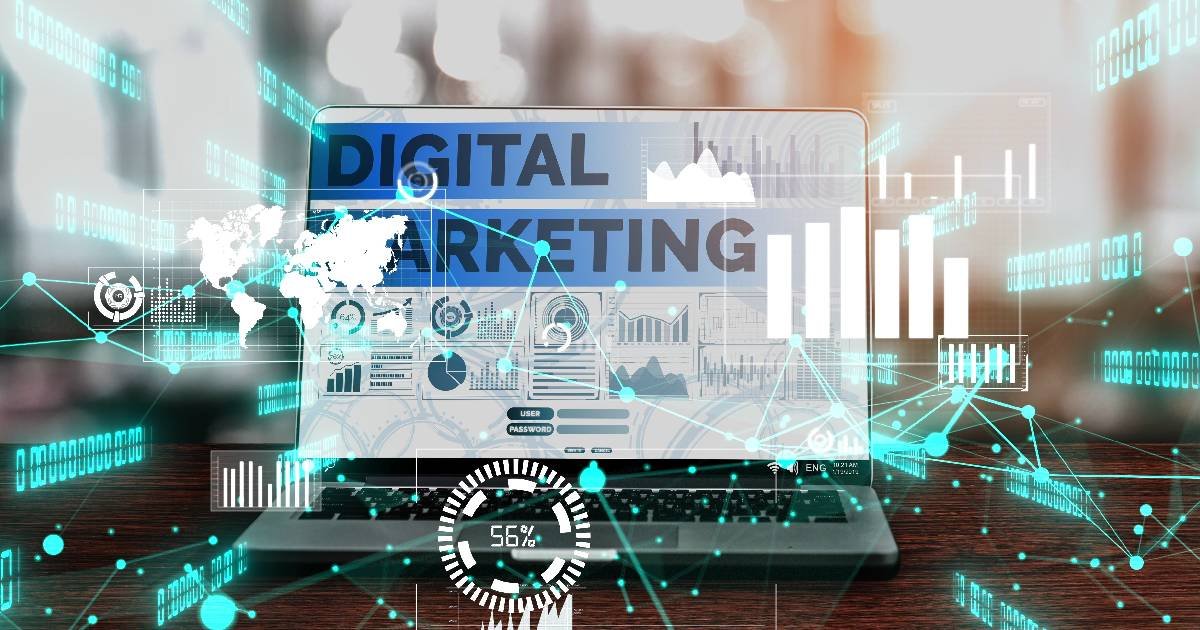With today’s fast-paced, interconnected world, it’s hard to find a business owner who hasn’t heard the term “digital marketing” being thrown around. But what exactly is digital marketing, and how can it help your business soar to new heights? Let’s dive in and explore the incredible potential of this powerful tool.
The Evolution of Marketing From Radio Waves to Digital Frontiers
To truly grasp the concept of digital marketing, it’s helpful to take a step back in time. Let’s rewind to 1896, when Guglielmo Marconi first demonstrated the transmission of wireless signals to the public. This groundbreaking event not only revolutionized technology but also opened up a whole new world of possibilities for marketing.
Fast forward to the present day, and we find ourselves in an era where the internet has become an integral part of our daily lives. As technology advanced and internet access spread across the globe, digital marketing emerged as a game-changer for businesses of all sizes. From social media and email to websites and mobile apps, digital channels now serve as powerful platforms for brands to promote their products and services.
A Comprehensive Definition Of Digital Marketing
So, what exactly is digital marketing? In a nutshell, it’s a strategic approach that leverages both online and offline electronic devices to promote products, brands, and services to a targeted audience. This is achieved through a variety of tactics, such as search engine marketing, affiliate marketing, social media marketing, and content marketing.
Unlike traditional marketing methods, digital marketing allows businesses to connect with their ideal customers in a more targeted and cost-effective manner. By harnessing the power of data and technology, marketers can craft personalized messages that resonate with their audience, ultimately driving more sales, leads, and opportunities.
Digital Marketing Advantage
To better understand how digital marketing works, let’s consider a real-world example. Imagine you’re a college looking to attract new students. In the past, you might have relied on roadside billboards to get the word out. But with digital marketing, you can take a more targeted approach.
By leveraging social media platforms like Facebook, you can create sponsored ads that reach the right people at the right time. Through careful research and demographic targeting, you can ensure your message lands in front of high school students who are actively considering their college options, as well as their parents. This targeted approach not only increases the likelihood of generating qualified leads but also offers a far better return on investment compared to costly billboard ads.
The beauty of digital marketing lies in its ability to connect businesses with their ideal customers, regardless of where they are in their buying journey. Whether someone is simply browsing the web or actively searching for a product or service, a well-executed digital marketing strategy ensures that your business is visible and accessible when it matters most.
Digital Marketing Toolbox
Now that we’ve covered the basics of digital marketing, let’s dive into some of the key services and strategies that fall under its umbrella.
- Search Engine Optimization (SEO) SEO is all about improving your website’s visibility in search engine results pages (SERPs) for relevant keywords and phrases. By optimizing your site’s content, structure, and technical elements, you can increase your chances of ranking higher in organic search results, ultimately driving more qualified traffic to your site.
- Search Engine Marketing (SEM) SEM is a paid version of SEO, where businesses pay search engines like Google and Bing to display their website at the top of SERPs for specific keywords. This can be a highly effective way to generate instant visibility and drive targeted traffic to your site, though it does require a dedicated budget.
- Social Media Marketing (SMM) Social media marketing involves leveraging platforms like Facebook, Instagram, and Twitter to promote your brand, products, or services. This can be done through a combination of organic posts and paid advertising, allowing you to reach a vast audience and engage with your customers on a more personal level.
- Content Marketing Content marketing focuses on creating and distributing valuable, relevant, and consistent content to attract and retain a clearly defined audience. By providing your target customers with informative blog posts, videos, infographics, and other engaging content, you can build trust, establish your authority, and ultimately drive more sales.
- Email Marketing Despite the rise of social media, email marketing remains a highly effective way to connect with your customers and promote your business. By sending targeted, personalized emails to your subscriber list, you can nurture leads, drive traffic to your website, and encourage repeat business.
- Pay-Per-Click (PPC) Advertising PPC is an online advertising model where businesses pay a fee each time one of their ads is clicked. This can be an excellent way to drive instant traffic to your site and generate leads, though it does require careful management to ensure a positive return on investment.
Put It All Together & Craft A Winning Digital Marketing Strategy
While each of these digital marketing services can be powerful on its own, the real magic happens when they’re combined into a cohesive, well-executed strategy. By understanding your target audience, setting clear goals, and leveraging the right mix of tactics, you can create a digital marketing plan that drives real results for your business.
Of course, developing a successful digital marketing strategy is no easy feat. It requires a deep understanding of your customers, a willingness to experiment and adapt, and a commitment to continuous learning and improvement. But with the right approach and a bit of persistence, the rewards can be truly transformative.
The Future of Digital Marketing: Trends and Predictions
As we look ahead to the future of digital marketing, one thing is clear: the landscape will continue to evolve at a rapid pace. From the rise of artificial intelligence and voice search to the growing importance of personalization and user experience, businesses will need to stay on top of the latest trends and technologies to remain competitive.
Some of the key digital marketing trends to watch in the coming years include:
- The continued growth of mobile: With more and more people accessing the internet via their smartphones and tablets, businesses will need to prioritize mobile-friendly websites and advertising.
- The rise of video content: Video is already a hugely popular format, and its importance is only set to grow in the coming years. Businesses that can create engaging, informative video content will be well-positioned to capture their audience’s attention.
- The increasing importance of personalization: As consumers become increasingly savvy and demanding, businesses will need to find ways to deliver highly personalized experiences across all touchpoints.
- The emergence of new technologies: From virtual and augmented reality to chatbots and voice assistants, new technologies are constantly emerging that have the potential to revolutionize the way businesses connect with their customers.
Embrace the Power of Digital Marketing To Grow Your Business
In today’s digital age, embracing the power of digital marketing is no longer a choice – it’s a necessity. By leveraging the right strategies and tactics, businesses of all sizes can expand their reach, engage their customers, and drive meaningful growth.
Whether you’re just getting started with digital marketing or looking to take your efforts to the next level, the key is to stay curious, adaptable, and committed to delivering real value to your audience. With the right approach and a bit of creativity, the possibilities are truly endless.
So what are you waiting for? It’s time to dive in and unlock the incredible potential of digital marketing for your business. The future is digital – and it’s yours for the taking.



